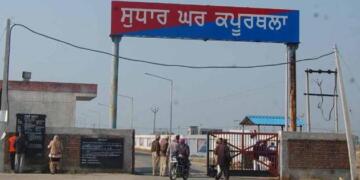At a public meeting in Raichur, Karnataka, AIMIM chief and Hyderabad MP Asaduddin Owaisi once again targeted Prime Minister Narendra Modi and the BJP-led Union government, claiming that the Waqf Amendment Act was a tool to intimidate the Muslim community. “PM Modi or the BJP government cannot take away the land under Waqf from us,” said Owaisi, attempting to whip up a sense of fear and victimhood.
However, such outbursts from Owaisi have become predictable whenever the government brings much-needed reforms that aim to ensure transparency and accountability. This latest attempt to stir communal sentiments seems more like a desperate political ploy than a genuine concern for minority rights.
Owaisi and the JPC Walkout: Dodging Accountability
Interestingly, Owaisi himself was nominated as a member of the Joint Parliamentary Committee (JPC) that was set up to scrutinize the Waqf Amendment Bill. But rather than engaging in constructive debate, he and a few of his allies chose to boycott the discussions and walk out.
This walkout is telling. Instead of using the JPC as a platform to voice any genuine concerns and propose amendments, Owaisi’s camp decided to play the victim card yet again. This only exposes their lack of willingness to contribute to nation-building and reforms that promote transparency.
Why India Needs the Waqf Amendment Bill
For decades, Waqf properties across India have been embroiled in corruption, illegal leasing, and mismanagement. In many states, these assets have been siphoned off by vested interests using political and communal shields.
The Amendment Bill seeks to establish clear land titles, enforce accountability from the Waqf boards, and prevent illegal claims. It also seeks to empower the Central Waqf Council with more oversight authority. These are essential steps in cleaning up a system that has long been opaque and riddled with controversies.
What Is the Waqf Amendment Bill?
The Waqf Amendment Bill, 2025, was introduced in Parliament with the sole objective of streamlining the administration of Waqf properties, curbing illegal encroachments, and ensuring proper documentation and transparency. The bill also aims to bring Waqf boards under stricter audit regulations to prevent mismanagement and corruption.
Far from targeting any religious community, the bill is about good governance and responsible administration of properties worth thousands of crores, many of which have remained in legal grey areas for decades. It is a step forward in ensuring that public assets, regardless of their religious linkage, are managed in the public interest.
Controversial Waqf Land Claims: From Tamil Nadu to Karnataka
In recent years, there have been disturbing reports of Waqf boards laying claim to entire villages. A notable instance was from Tamil Nadu, where villagers were shocked to find that their entire hamlet had been listed under Waqf land without their knowledge or consent. In Karnataka and Maharashtra too, claims on government and private properties have caused legal chaos and public outrage.
These instances underline the urgent need for clarity in land records and strong checks against fraudulent claims. The Waqf Amendment Bill is designed precisely to address such anomalies and bring justice to ordinary citizens whose property rights are threatened by dubious claims.
Reform Is Not Intimidation
Asaduddin Owaisi’s outcry over the Waqf Amendment Bill appears to be more about political theatre than constitutional substance. The bill does not seek to target Muslims or take away genuine Waqf properties but rather ensures transparency and fairness.
By opposing such legislation and walking out of parliamentary discussions, Owaisi and his allies are doing a disservice not only to the Muslim community but also to the nation. Accountability is not discrimination, and transparency is not intimidation. It’s time leaders like Owaisi recognize that India needs reformers, not rabble-rousers.























